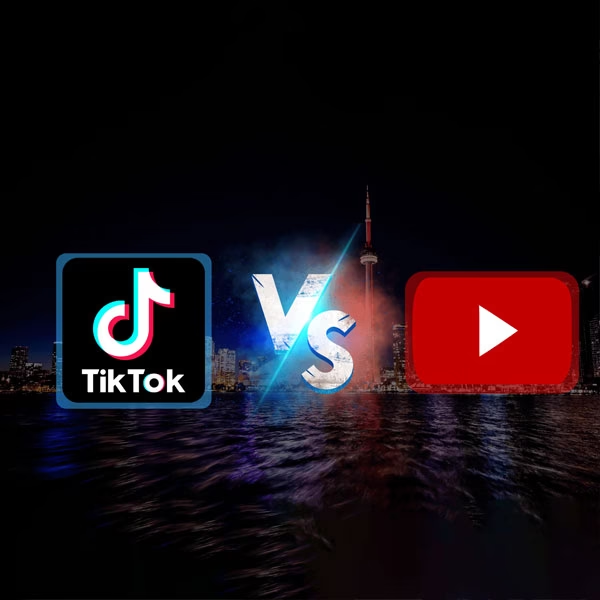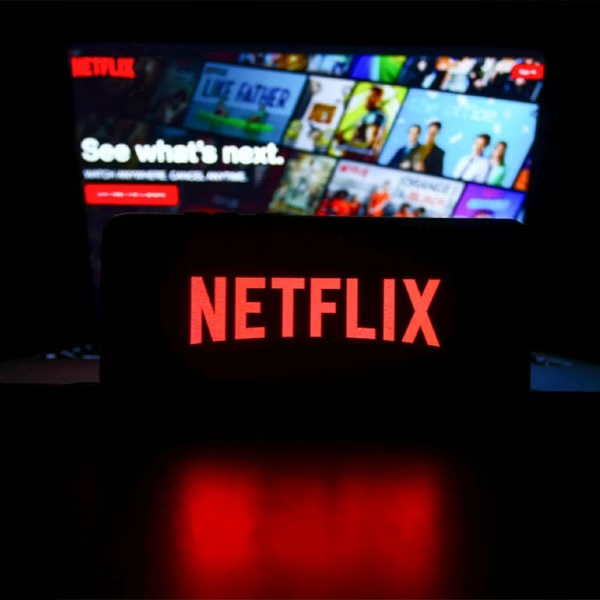Introduction: The Unstoppable Rise of AI in Hollywood
In 2025, the entertainment landscape has changed beyond recognition. The once-distant possibility of AI-generated movies has become a dominant force in Hollywood. Studios, tech giants, and independent creators now use artificial intelligence to write, animate, cast, direct, and edit full-length films. As a result, traditional actors, screenwriters, and production crews face an existential shift in their roles. The Hollywood film industry, long a symbol of human creativity, now finds itself at a turning point—ushered in by algorithms, data models, and digital avatars.
The promise? Faster, cheaper, data-driven production. The threat? Job loss, creative dilution, and legal chaos. In this report, we dive into how AI-generated movies are disrupting Hollywood in 2025, who is driving the change, what’s at stake, and where it’s all heading.
The Rapid Rise of AI-Generated Movies in 2025:
A New Era of Filmmaking:
In the rapidly evolving entertainment landscape, AI-generated movies in 2025 have become more than just a trend—they’re a dominant force reshaping storytelling, production, and audience expectations. The demand for AI-generated movies in 2025 has skyrocketed as studios seek faster, cost-effective alternatives to traditional filmmaking.
From scriptwriting to post-production, AI-generated movies in 2025 are created using advanced language models and visual rendering tools that mimic human creativity. One of the major reasons AI-generated movies in 2025 are thriving is their ability to adapt to audience data in real time, ensuring every frame is optimized for viewer engagement. Unlike previous years, AI-generated movies in 2025 are no longer confined to experimental indie projects—they now headline major streaming platforms.
The technology behind AI-generated movies in 2025 allows for seamless voice synthesis, photorealistic actors, and even AI-directed storytelling arcs. As more celebrities license their digital twins, AI-generated movies in 2025 are becoming a new normal in Hollywood.
The global market for AI-generated movies in 2025 is also expanding rapidly, particularly in Asia and Europe. With audience tastes shifting and production models transforming, it’s clear that AI-generated movies in 2025 are here to stay.
AI Is Now the Director: Full-Length Films Without Human Creators
In 2025, a staggering 22% of new films released in North America are entirely or partially AI-generated, according to the Motion Picture Association. What began with minor AI tools assisting in editing and VFX has evolved into autonomous AI systems crafting entire narratives, scenes, soundtracks, and even performances.
AI tools like OpenAI’s Sora, Runway Gen-3, and Google DeepCinema are leading the charge.
Scriptwriting with Large Language Models
AI screenwriters powered by advanced language models like GPT-5 and Claude Next are now capable of producing fully fleshed-out screenplays in minutes. These models are trained on thousands of successful scripts, genre-specific tropes, and global box office trends.
Studios feed these models detailed prompts including genre, plot structure, pacing preferences, and target audience demographics. What returns is a studio-ready draft with compelling characters, logical arcs, and emotional beats—ready for pre-visualization.
Virtual Actors: Lifelike, Legal, and On-Demand
AI avatars, trained on licensed datasets of celebrity faces, voices, and body language, have become the faces of major blockbusters.
Actors like James Dean and Audrey Hepburn are starring in new films, decades after their deaths, via legally cleared digital doubles. Meanwhile, living actors license their likenesses for synthetic performance, allowing multiple productions to feature them simultaneously—without ever stepping on set. AI-generated movies in 2025
Studios save millions on salaries, scheduling, and insurance. AI-generated performers don’t require trailers, don’t complain about scripts, and never go off-script. However, this raises complex ethical questions about consent, legacy, and what it means to perform.
AI Directors and Editors: Removing the Human Touch?
Editing suites now run autonomous AI directors that select optimal camera angles, lighting balances, pacing, and even emotional resonance based on audience reaction simulations. AI editors can simulate how specific scenes will perform across different demographics and international markets. With predictive analytics, studios adjust scenes even before test screenings.
Blockbuster Case Studies: When AI Took Over the Silver Screen
1. Eclipse Protocol (2025)
Produced by a hybrid team of engineers and creatives at Netflix AI Studios, Eclipse Protocol was the first $100 million AI-directed action movie. Written and visualized by GPT-based models, the film starred fully digital avatars voiced by AI versions of Tom Hardy and Rosario Dawson.
Released globally in January 2025, it earned $650 million worldwide and topped streaming charts. Critics praised its tight pacing and spectacular effects but noted the lack of improvisation or emotional nuance.
2. The Last Ember (AI Auteur Films)
An indie studio led by technologist Raina Cho created this romantic sci-fi drama with no human crew. The story, visualized via Runway’s Gen-3 model, used deepfake actors based on publicly licensed performers.
What stood out was the cinematography—entirely simulated based on neural aesthetics trained on award-winning films. The movie received critical acclaim at Sundance and opened debates about whether humans are needed for deep emotional storytelling.
3. Hollow Fame (DreamLens Studios)
This AI-generated satire explored fame in the era of synthetic celebrities. Featuring real influencers’ AI-generated avatars, the film blurred reality and fiction. Ironically, the film’s AI script subtly criticized the very tech used to make it.
It went viral online, earning $18 million in its opening weekend and leading to a public discussion on the implications of synthetic fame.
The Economic Shake-Up: Who Wins and Who Loses?
Studios Gain Leverage
For major studios, AI film production slashes costs by up to 65%. No reshoots, no overpaid stars, no delays. Marketing becomes more surgical, driven by predictive AI sentiment analysis. AI allows studios to produce more films for less and experiment with niche genres.
Actors and Writers in Peril
The Writers Guild of America (WGA) and Screen Actors Guild (SAG-AFTRA) have launched multiple protests and lawsuits over AI usage. The issue is ownership and compensation: should a writer whose work trained the AI get royalties? Do actors own their digital likeness, or can it be licensed perpetually?
The Rise of AI Consultants
A new job category is emerging: AI film consultants. These professionals understand both narrative and machine learning. They act as creative-directive liaisons, fine-tuning AI outputs to maintain cinematic quality while keeping costs down.
Legal and Ethical Minefields in the Age of Synthetic Cinema
Who Owns the Output?
A central legal question is ownership. If an AI model writes a screenplay, does the studio, the AI developer, or the AI itself hold the copyright? U.S. courts have ruled in 2024 that non-human authorship cannot be copyrighted, which complicates licensing and profit-sharing.
The Consent Conundrum
Actors who sold their likeness in early contracts are now realizing that perpetual rights agreements signed for minor roles are now being used to recreate them in blockbuster films. Consent, especially retroactive, is under intense scrutiny. New laws in California and the EU are expected to mandate time-limited, revocable AI likeness licenses.
Synthetic Deepfakes vs. Artistic Expression
There’s growing concern about deepfake misuse, especially in adult or controversial content. While AI-generated films can be transformative and artistic, they also open the door to unauthorized, exploitative digital performances. Regulatory frameworks lag behind the speed of innovation.
Audiences Are Divided: Innovation vs. Authenticity
Surveys Show Split Reactions
A 2025 Pew Research survey revealed that 52% of American viewers are excited about AI-generated movies for their novelty and cost-efficiency. However, 41% express concern about authenticity, emotional depth, and job losses.
Younger audiences (ages 18–34) are more receptive, valuing digital realism and innovation. Older demographics remain skeptical, especially about AI’s ability to replicate true human expression.
The Return of “Human-Made” as a Selling Point
In response, some studios are marketing films as “100% human-created“—a reverse strategy aimed at preserving the allure of traditional filmmaking. Directors like Christopher Nolan and Greta Gerwig have publicly pledged to avoid AI tools, reinforcing their human-centric cinematic brands.
Global Industry Trends: Hollywood Is Just the Beginning
China and South Korea Lead in AI-First Filmmaking
Chinese streaming platforms like iQiyi and Tencent Video are already using AI for script optimization and avatar casting. South Korea has developed its own synthetic pop stars and is now exporting AI-powered dramas.
These markets benefit from government backing, lenient IP regulations, and massive training datasets. Hollywood is now playing catch-up, fearing that a global cinematic shift may undercut its cultural dominance.
India’s Bollywood Adopts AI for Localization
Bollywood studios use AI to dub films into multiple languages simultaneously, create regional avatars, and simulate dance choreography. The speed of post-production has improved by 300%, giving Indian filmmakers unprecedented global reach. AI-generated movies in 2025
What’s Next: The Hybrid Model as a Way Forward
Rather than full replacement, 2026 is shaping up to be the year of hybrid filmmaking. In this model:
-
Human writers generate core ideas, while AI handles structure and formatting.
-
Actors perform key scenes, with AI enhancing or expanding their presence digitally.
-
Directors guide AI systems with personalized style datasets, retaining creative control.
This approach blends efficiency with authenticity, offering a path forward for an industry in flux.
Conclusion: Redefining Cinema, Not Replacing It
The disruption caused by AI-generated movies in 2025 is not a temporary trend—it’s a permanent transformation. The rules of filmmaking are being rewritten, not by humans alone, but by code, algorithms, and neural networks. Hollywood faces a dual challenge: embracing technological innovation while preserving the essence of storytelling.
As AI continues to reshape the landscape, the central question remains: can we create meaningful art with machines, or will we lose what makes cinema human? The answer will define the next decade of entertainment. AI-generated movies in 2025
You May Also Like: YouTube Scripted Series Rival Traditional TV in 2025








